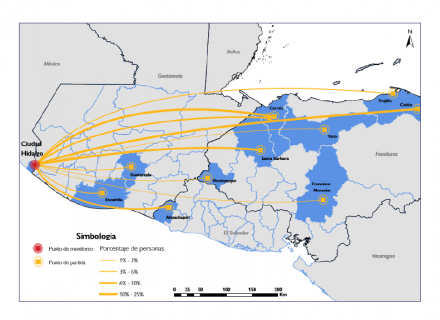The management of migration data contributes to evidence-based decision making through research, knowledge generation and the production of timely, high quality analytical reports, infographics and maps. It informs the Western Hemisphere Program on migratory trends, migrant’s characteristics and vulnerabilities, and contributes to the development of data-driven solutions for an improved, humane and human rights-based migration governance.
The documents in this section contain updated migration data in the region.
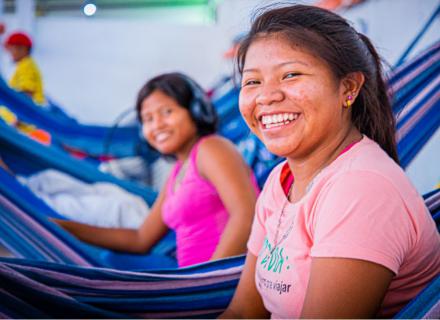

Protecting data is protecting people: four questions and answers about data protection and information hubs
In the framework of January 28, International Data Protection Day, IOM, from the Western Hemisphere Program, shares with the Information Hubs on Migration of the region four key questions and answers on the subject.
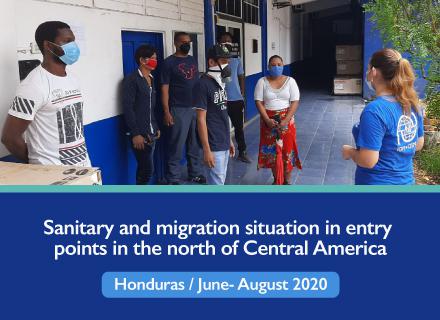
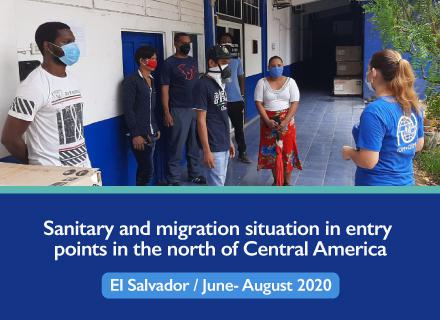
Baseline for the evaluation of migration flows and the identification of needs in border communities, under the COVID-19 context in El Salvador
Learn about the sanitary and migratory situation as monitored in Anguiatú, El Amatillo, El Poy, La Hachadura, Las Chinamas and San Cristóbal, between June and August, 2020.
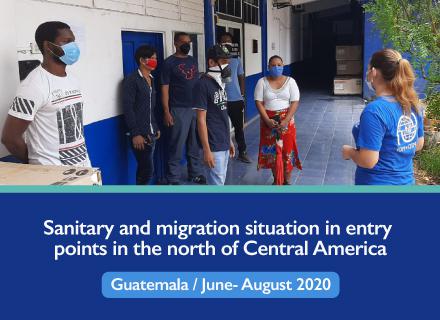
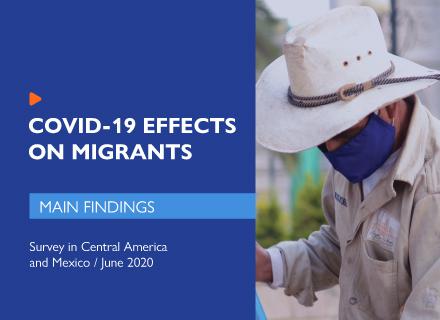
Effects of COVID-19 on Migrants in Central America and the Caribbean: main findings
This study was conducted throughout the month of June, 2020, by digital means and using snowball sampling. Findings are based on 1660 valid answers and include three population segments: extraregional migrants in Central America and Mexico, people from Central America or Mexico who are migrants in any place of the world and people who are native to Central America or Mexico and who plan on migrating.
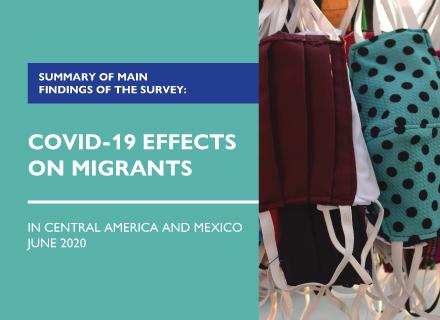
Summary of main findings of the survey: COVID-19 effects on migrants in Central America and Mexico
The International Organization for Migration (IOM) presents the main findings of a survey addressed to migrants (in their home countries or residing, potential or in transit) of Central America and
Mexico. The main goal was to generate data for the analysis of the COVID-19 repercussions on migrants that can guide the response of the multiple actors involved in health response,
migration management and strategies for socioeconomic recovery. This document summarizes the main results of the survey.
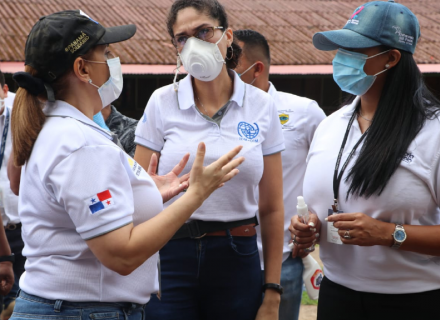
Panama- Emergency Tracking: Migratory Receiving Stations-COVID 19 Pandemic (1st May)
The information in this report is collected by IOM Panama staff in Darién and Chiriquí, through field monitoring, multi-sectoral assessments through key informants, as well as regular information exchange at the technical level, and at the central level of the United Nations Inter-Agency Group on Human Mobility.
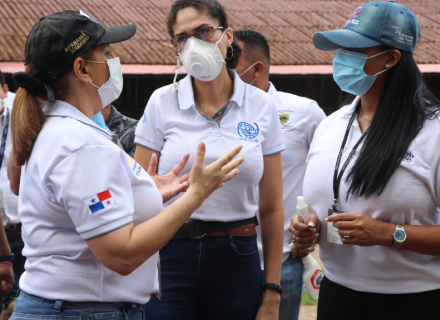
Panama- Emergency Tracking: Migratory Receiving Stations-COVID 19 Pandemic (April 25th)
The information in this report is collected by IOM Panama staff in Darién and Chiriquí, through field monitoring, multi-sectoral assessments through key informants, as well as regular information exchange at the technical level, and at the central level of the United Nations Inter-Agency Group on Human Mobility.




